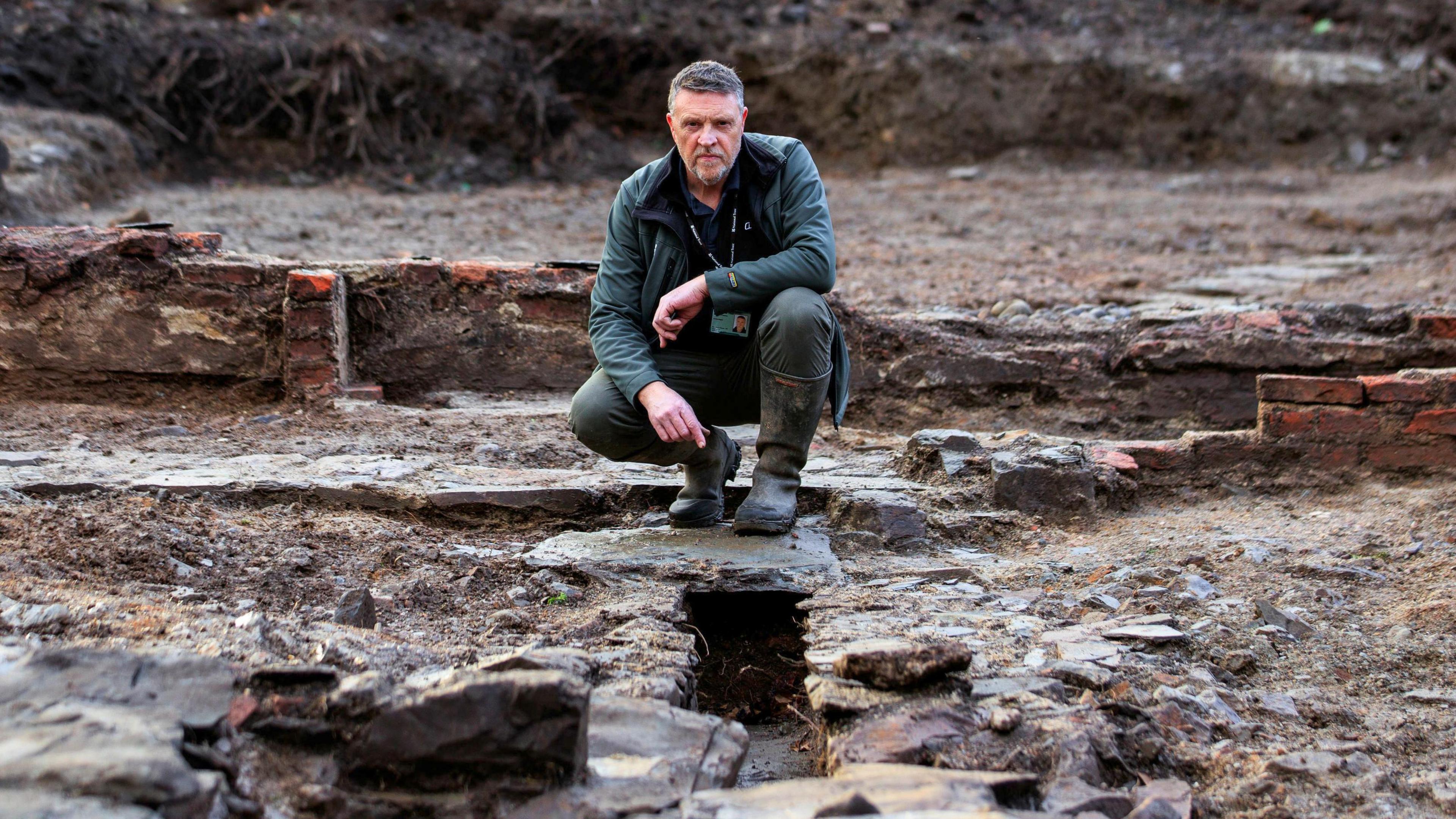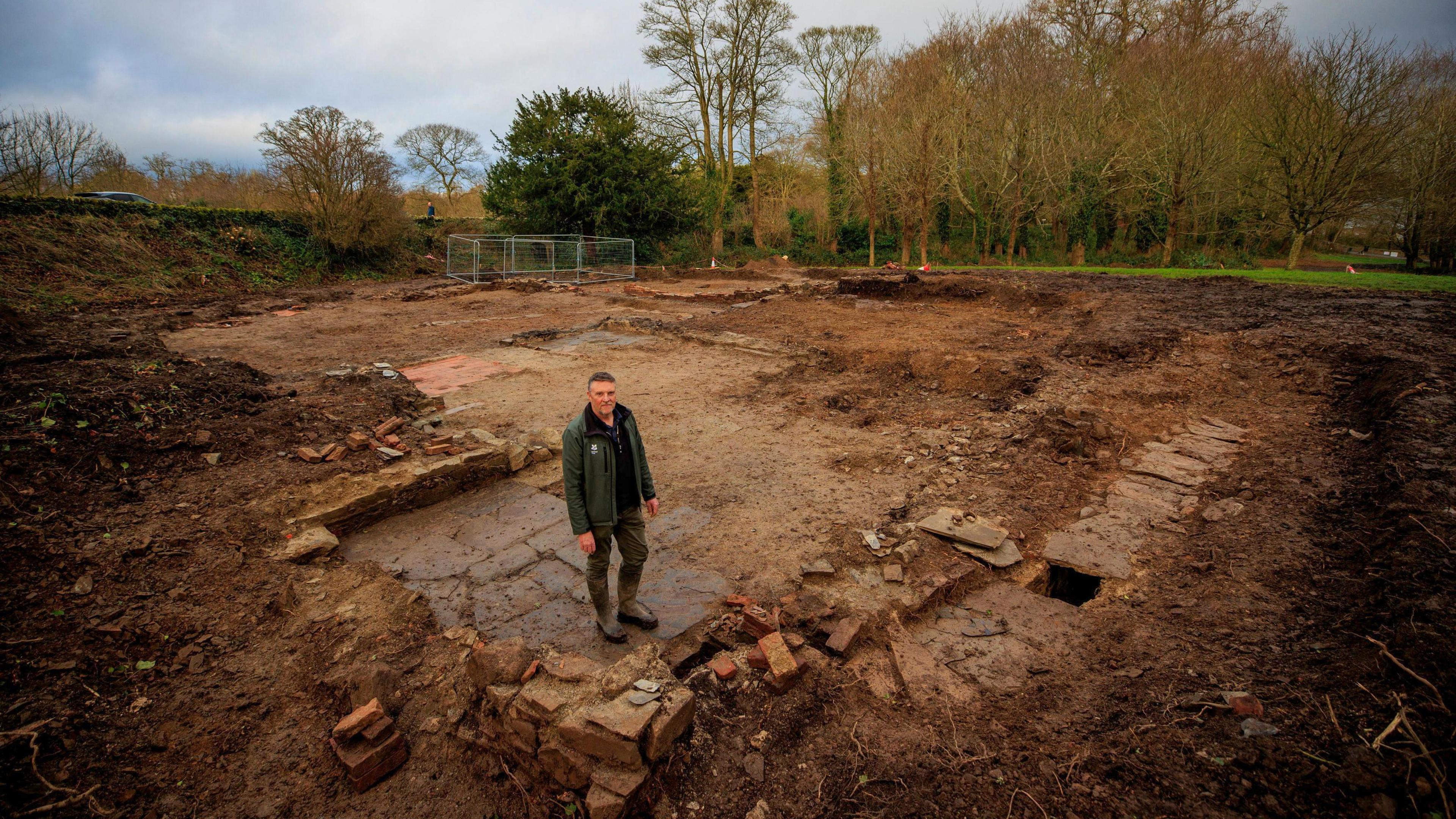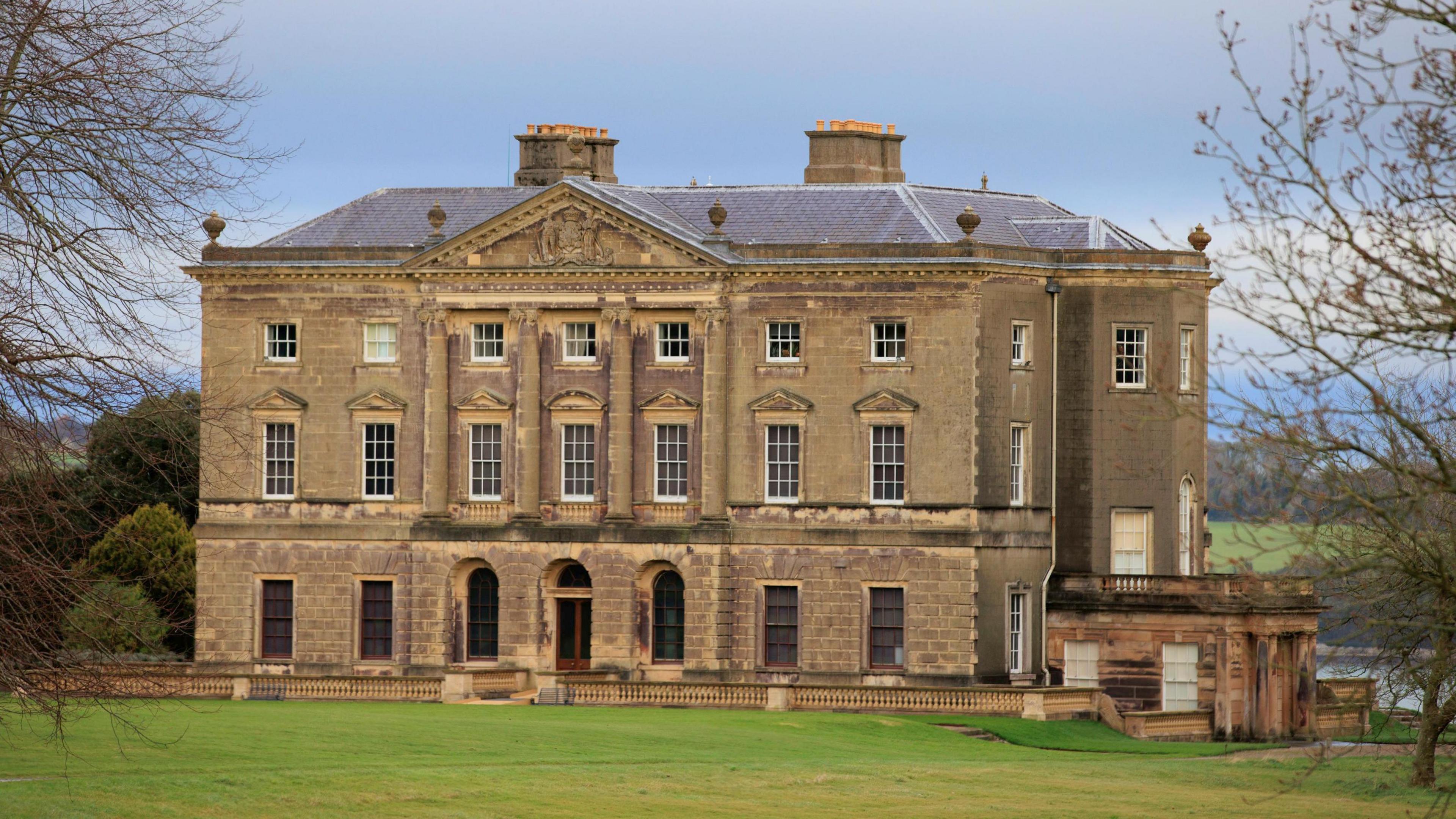'Surprise find' of 300-year-old ruins at Castle Ward

National Trust archaeologist Malachy Conway said it was a "really significant" discovery
- Published
Archaeologists have been taken by surprise by the chance discovery of the remains of a collection of buildings in County Down believed to be more than 300 years old.
The foundations of a courtyard and building complex were unearthed at the Castle Ward estate - an 18th Century mansion which overlooks Strangford Lough.
The discovery of the previously undocumented ruins was made during drainage work at the estate, which is now owned and managed by the National Trust.
One theory is that they were utilitarian buildings which were demolished because they were considered an "eyesore" when the later mansion was built in the 1760s.

Experts believe these newly discovered remains may date back to the late 1600s or the early 1700s
Malachy Conway, the National Trust's regional archaeologist for Northern Ireland, described it as a "really significant" discovery.
"There was nothing on our maps that was showing anything to be there," he told the Press Association.
"And then, lo and behold, they stumble upon and suddenly find previously unknown building remains."
Although construction began on the existing mansion in the 1760s, there was an original Castle Ward house which was built in the early part of the 18th Century.
Experts believe these newly discovered remains may be domestic or farm buildings used by the first house and date back to the late 1600s or the early 1700s.
'An eyesore'

The discovery was made while a drainage pipe was being laid at the Castle Ward estate
Michael Fearon, from Northern Archaeological Consultancy, was on site monitoring the drainage system construction when the discovery was made.
He believes that the newly discovered buildings "might have been an eyesore from the window, so they decided to demolish that just so that it was not in view out their windows".
"They wouldn't have wanted anything that would detract from the natural landscape," he told the Press Association.
The building remains are located around a central, cobbled courtyard and some had tiled and flagged floors.
A sink, fireplace, cellar and network of stone-lined drains have all been identified.
Artefacts such as glass bottles, ceramics, pottery and discarded butchered, animal bones were also found.